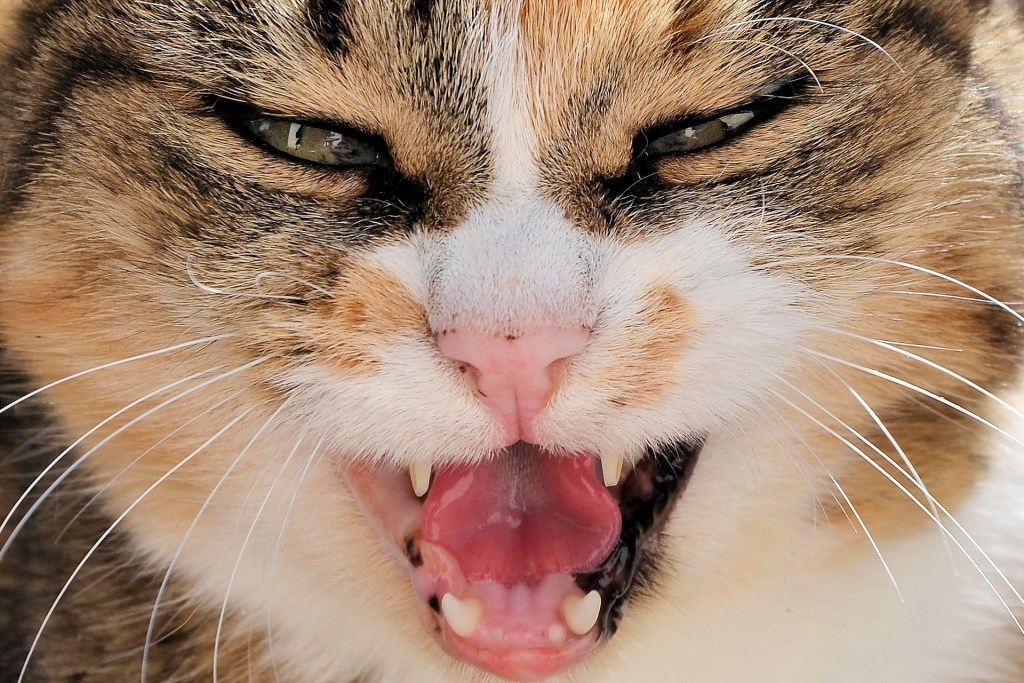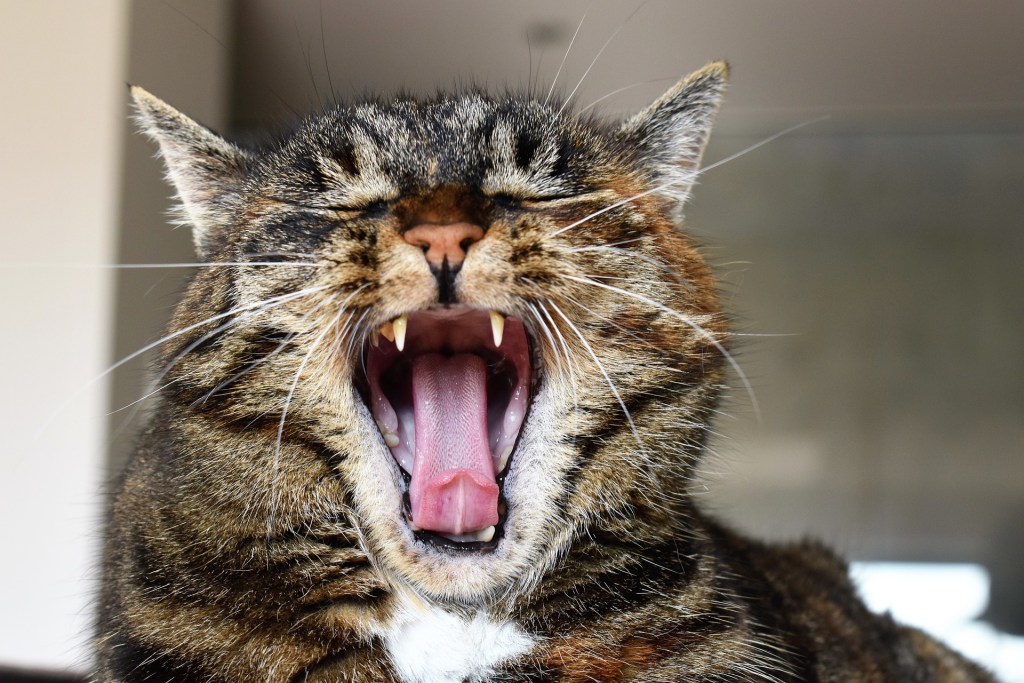When making sure that your cat is healthy, you probably look for signs like a tense body posture or a change in your cat’s daily habits. But did you know that your cat’s gum appearance can provide important insight into his overall wellness? Your cat’s gums can provide not only information about his dental health but can also signal when something else is amiss in his body. Learning what looks normal and what indicates a problem can help you to use your cat’s gums to keep an eye on his health, too. A quick peek inside your cat’s mouth can give you important information that you can use to take better care of your cat. We’ll go over what makes for healthy cat gums.

What do a healthy cat’s gums look like?
Your cat’s gums can indicate when something is amiss. Changes in gum appearance might signal that your cat is sick, or that he’s developing a dental issue. But to be able to tell what’s abnormal for your cat, you’ll need to know what your cat’s gums normally look like.
Healthy cat gums should be a pink color, according to VetWest. Get in the habit of checking your cat’s gums weekly by gently lifting up the side of his lip with your finger. Try to memorize the color of your cat’s gums so you’ll know when something isn’t right.
How can I tell if my cat has bad gums?
Cornell University explains that poor gum health can be a sign of gingivitis in cats. Gingivitis is a dental condition where your cat’s gums become inflamed because of plaque buildup. They might appear to be red, swollen, and painful.
That buildup of plaque leads to bad bacteria developing in your cat’s mouth. The bacteria can damage the cells that are between the gums and the teeth, leading to gingivitis. In some cases, your cat’s gums may even bleed by the teeth, and your cat might have difficulty chewing. You may notice abnormally bad breath, and your cat may drool.
If you find that your cat’s gums are red and irritated, make an appointment with your veterinarian. Your vet can remove plaque buildup and treat gingivitis, and often, the effects of the condition can be reversed. Left untreated, gingivitis can progress to other serious diseases like periodontitis, so it’s important to get your cat treated.
While bad gums can indicate gingivitis, changes in gum color can signify other health issues.
What do pale gums mean in a cat?
VetWest explains that pale or white gums can indicate that your cat is in shock, and blood isn’t circulating to his gums. This should be considered an emergency and requires immediate veterinary treatment.

Why are my cat’s gums grey?
Grey, purple, or blue gums can indicate a lack of oxygen in your cat’s blood. This is another emergency.
What problems can my cat’s yellow gums signal?
In some instances, you might notice that your cat’s gums are abnormally yellow. A yellow tinge can indicate organ problems, including liver disease, and your cat will need diagnostics and treatment.
While gum color can provide warning messages that something is amiss with your cat, it isn’t a diagnostic tool in and of itself. Instead, think of changes in your cat’s gum appearance as a warning that you need to take your cat to the vet. Your vet can use these signals to start investigating what may be wrong with your cat, and gum color might help your vet to rule out a few possibilities and diagnose the issue faster. If you notice a different gum appearance in your cat, be sure to mention this to the vet’s receptionist and to the vet during your appointment.
Always pay attention
Cats can become sick quickly, and because they’re stoic, we sometimes only realize that something is wrong once they really aren’t feeling well. When treating health issues in cats, though, the earlier you can determine something is wrong, often the easier the problem is to treat. You can use aspects like your cat’s gum appearance to monitor your cat’s health. In addition to keeping an eye on your cat’s gums, get into the habit of monitoring your cat’s food and water intake, litterbox habits, sleeping habits, and overall activity and energy level. Any changes in these factors could signal that your cat isn’t feeling like himself, so be sure to take him to the vet if you suspect something isn’t right.
Editors' Recommendations
- Wondering why cats chirp? Fascinating reasons why your cat chirps at birds (and you)
- How to tell if your cat is a Maine Coon mix (and why you should care)
- When do kittens’ eyes change colors? The answer is so cool – here’s what to know
- What you need to know about crating a cat at night
- Why doesn’t my cat meow? Here are 5 reasons why your feline friend is silent



